Search
Search Results
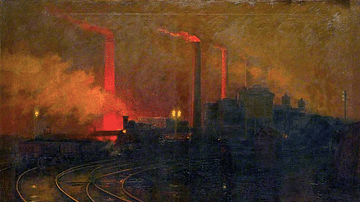
Definition
British Industrial Revolution
The British Industrial Revolution (1760-1840) brought innovative mechanisation and deep social change. The process saw the invention of steam-powered machines, which were used in factories in ever-growing urban centres. Agriculture remained...
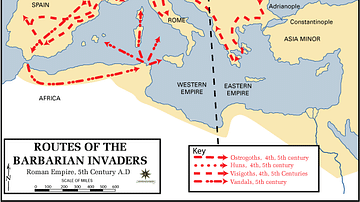
Definition
Western Roman Empire
The Western Roman Empire is the modern-day term for the western half of the Roman Empire after it was divided in two by the emperor Diocletian (r. 284-305 CE) in c. 285/286 CE. The Romans themselves did not use this term. At its height (c...
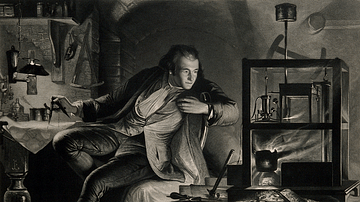
Article
The Steam Engine in the British Industrial Revolution
Steam power was one of the most significant developments of the Industrial Revolution (1760-1840) in Britain. First invented as a pump in the 1690s, a host of inventors tweaked designs and tinkered with machinery until an efficient and powerful...
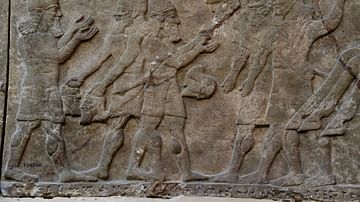
Article
Wall Reliefs: Ashurnasirpal II's War Scenes at the British Museum
The Mighty King 600 of their warriors I put to the sword and decapitated; 400 I took alive; 3,000 captives I brought forth; I took possession of the city for myself: the living soldiers, and heads to the city of Amidi the royal city...
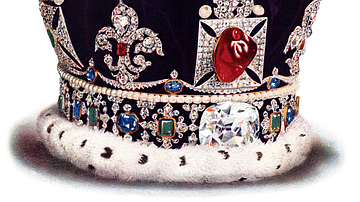
Definition
British Crown Jewels
The Crown Jewels of the monarchy of the United Kingdom of Great Britain and Northern Ireland are today kept in the Tower of London and date mostly to the 17th century, with a few later sparkling additions such as the Koh-i-Noor and Cullinan...
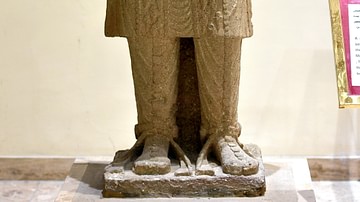
Definition
Parthia (Empire)
The Parthians ruled from 247 BCE to 224 CE creating a vast empire that stretched from the Mediterranean in the west to India and China in the east. East of the Caspian Sea there emerged from the steppe of Central Asia a nomadic Scythian tribe...
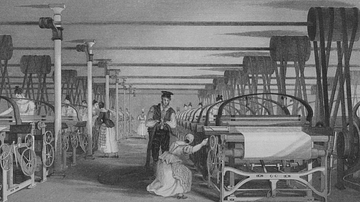
Article
The Textile Industry in the British Industrial Revolution
During the Industrial Revolution (1760-1840), textile production was transformed from a cottage industry to a highly mechanised one where workers were present only to make sure the carding, spinning, and weaving machines never stopped. Driven...

Article
Agriculture in the British Industrial Revolution
Agriculture, like most other areas of working life, was greatly affected by the machines invented during the Industrial Revolution. Agriculture in Britain and elsewhere had made leaps forward in the 18th century, and its success released...
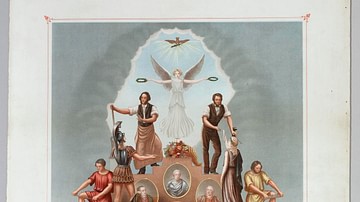
Article
Trade Unions in the British Industrial Revolution
Trade unions were formed in Britain during the Industrial Revolution (1760-1840) to protect workers from unnecessary risks using dangerous machines, unhealthy working conditions, and excessive hours of work. The trade union movement was vigorously...
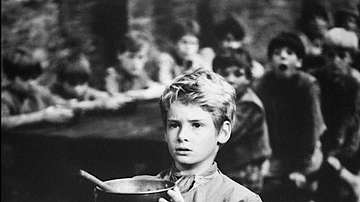
Article
Social Change in the British Industrial Revolution
The British Industrial Revolution (1760-1840) witnessed a great number of technical innovations, such as steam-powered machines, which resulted in new working practices, which in turn brought many social changes. More women and children worked...